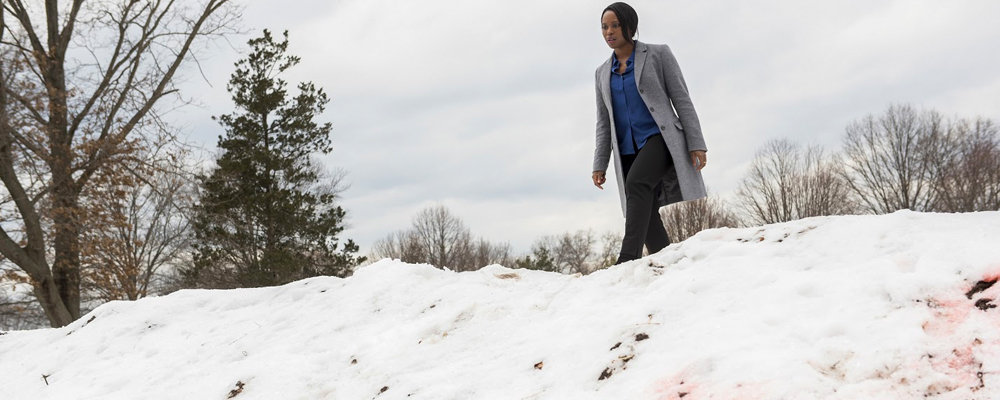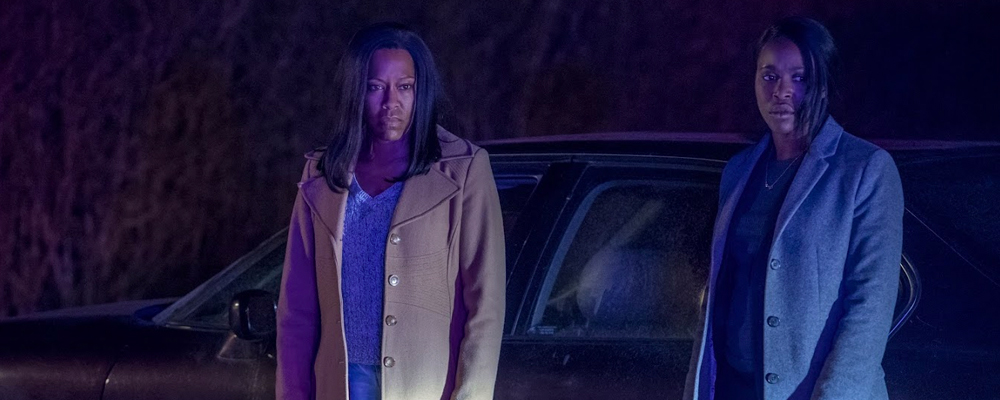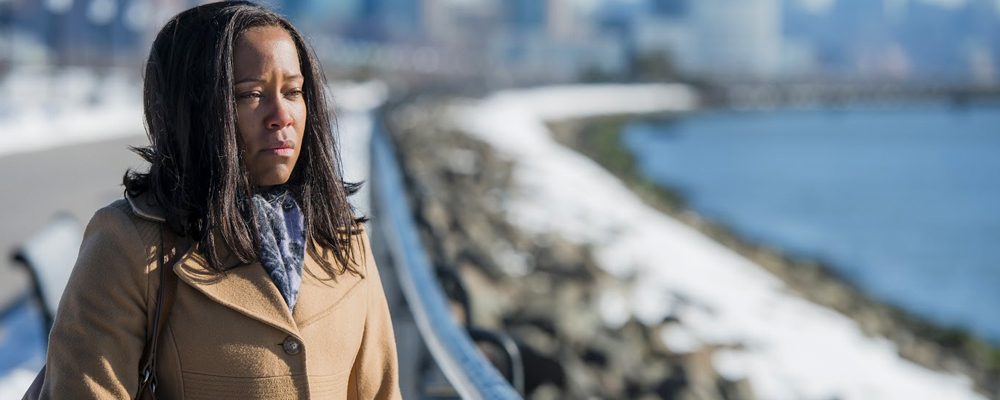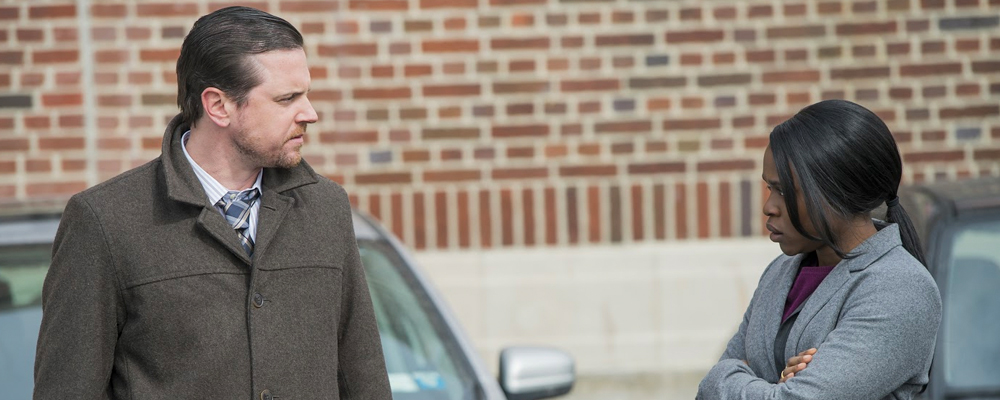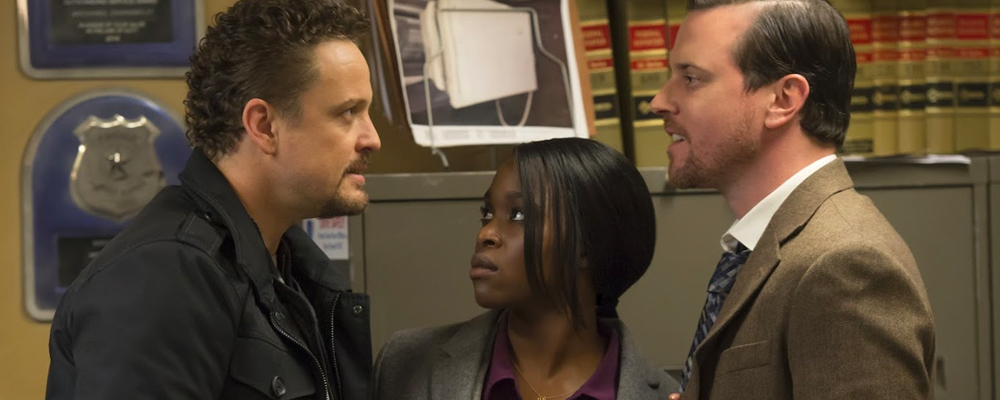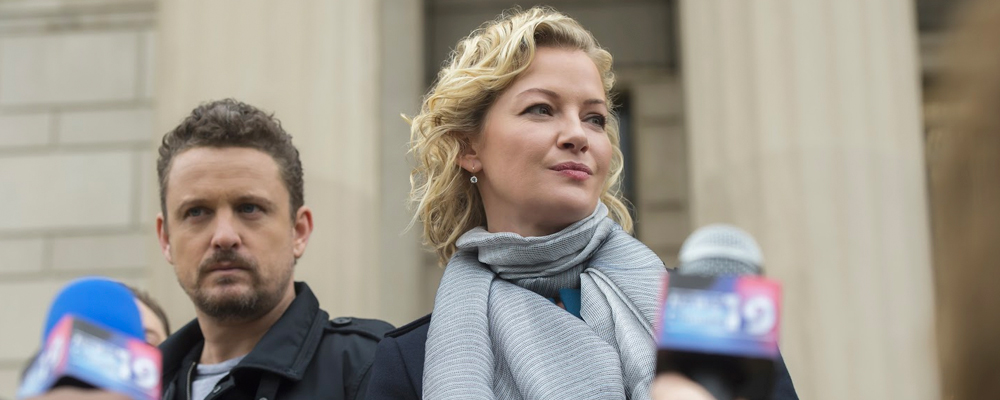Netflix’s ‘Seven Seconds’ Paints a Striking Portrait of Racial Divides in America
Aaron Berke
The clash between African American citizens and white police offers has reached a fever pitch in the United States. It’s front and center in today’s politics, in the news, and on the streets. It’s a dynamic that’s fully loaded with weighty opinions on both sides, and it’s a conflict that’s nearly impossible to solve. This complex dynamic defines Netflix’s new series “Seven Seconds,” a police procedural that captures both sides of the conflict with painstaking clarity. The series utilizes the death of an innocent black boy in a hit and run to fully flesh out the perspectives of both the African American community as well the white police officers. There are no easy answers and, surprisingly, no clear-cut villains (at first). “Seven Seconds” presents a plethora of fascinating characters on both sides of the spectrum. The result is a series that feels authentic, heartfelt and, most importantly, human.
“Seven Seconds” begins with a hit-and-run in a park in Jersey City. The victim is Brenton Butler, a black teenager riding his bike in the early morning when he’s hit by a blue vehicle. The driver is Peter Jablonski (Beau Knapp), a young white police officer who was just transferred over to Jersey City’s narcotics unit. Peter is in a frenzy, on the phone with his pregnant wife, Marie (Michelle Veintimilla) when he accidently hits Brenton. A horrified Peter waits for the arrival of his squad leader, special agent Mike Diangelo (David Lyons) who makes a decision that sets the course for the rest of the series. Diangelo informs Peter that they’re going to leave Brenton’s body and drive away. Diangelo assures a confused Peter that if word of Brenton’s death gets out, they’ll be accused of committing a racially motivated crime that will leave Jersey City’s entire police force in tatters.
So Diangelo and his fellow unit members, Felix Osario (Raul Castillo) and Gary Wilcox (Patrick Murney), abandon Brenton in a snow-filled ditch, unaware that the boy is actually still alive. Brenton lays in that ditch for 12 hours. Once Brenton is discovered, the fallout from the event encapsulates the Jersey City community, and necessitates a special investigation led by attorney K.J. Harper (Clare-Hope Ashity) and New York detective Joe “Fish” Rinaldi (Michael Mosley). Meanwhile, Brenton’s hard-nosed father, Isaiah (Russell Hornsby), kind-hearted mother Latrice (Regina King) and conflicted veteran uncle Seth (Zachary Momo) each experience the devastation of Brenton’s loss in their own unique way.
Brenton Butler, who’s nearly never seen throughout “Seven Seconds,” acts as the catalyst that forms each character’s trajectory. His death becomes a character-defining force that reveals the true colors of every player, citizen and officer alike. Every character goes through a remarkable change over the course of the series. Each of these characters holds a deep-seated illusion about himself or herself, and it takes an innocent boy’s death to free them.
Peter starts the series horrified at what he did, plagued by a guilty conscience. With Diangelo’s guidance, he eventually falls into his role as a narcotics officer, becoming increasingly hardened and ruthless, placing his own pride above moral responsibility. Diangelo, despite his heinous actions, possesses a loyalty to his narcotics unit and consistently acts to protect them. But as the investigation in Brenton’s death widens, so does Diangelo’s paranoia, and he slowly morphs into the series’ true villain. On the other side of the coin, KJ begins the series apathetic and self-destructive, spending her nights binge drinking in Karaoke bars. But Brenton’s death galvanizes her into action, allowing KJ to rectify her past by fighting for justice of Brenton’s death. Detective Rinaldi changes the least, beginning with a good heart and ending with one. But he’s rough around the edges in the beginning, and Brenton’s death removes those edges, showing how Rinaldi is increasingly driven to do the right thing.
Brenton’s death is the most impactful on his own family, and it painfully rips husband and wife apart. Isaiah begins the series as an unforgiving, hard-edged religious man, totally out of touch with his son outside of the personal demands that he placed upon him. As Isaiah mourns Brenton’s loss, he comes face to face with his own flaws, driving his wife and brother away in the process. Latrice is completely consumed with grief. Unable to bear the loss of her son, she goes on a wild journey to discover his killer’s identity. Her grief eventually turns into malice, driving her to contemplate killing Peter herself. Uncle Seth begins the series ready to embrace his family after a return from active duty in the military. But after Brenton’s death he slowly loses himself, returning to the drug-dealing gang that supported him in his youth.
The brilliance of “Seven Seconds” lies with how each of these storylines conflict and contrast with one another. Each protagonist is truly the hero of their own story, and the series creates a situation in which it’s entirely possible to simultaneously root for characters on complete opposite ends of the spectrum. We want KJ to win because she’s seeking justice for the death of an innocent young man. She also happens to be African American, and she has a personal stake in bringing the perpetrators of racial crimes to justice. At the same time we want Peter to be redeemed, because we believe that, despite his actions, he did not actually commit a racially motivated crime. We want to believe that Pete’s a good guy being corrupted by the system he serves, and we want to see him rediscover his innate morality.
The backdrop of race fuels each one of these storylines. As “Seven Seconds” builds momentum, the overall commentary on race moves from the background to front and center. The series depicts a culture of symbiotic hypocrisy, in which the police demonize the drug trade in the black community while the narcotics unit is secretly in business with Messiah, the drug lord who runs the local street gang. Adding insult to injury, Brenton himself is accused by the media of being a member of Messiah’s gang, because of his uncle’s association with them. The underlying assumption is that Brenton must have been a gang member because he was black. As the Jersey City locals stage a Black Lives Matter-style protest, the cops retreat behind their political allies, claiming the only color they see is blue, even as they continue to target the black community.
“Seven Seconds” is so powerful because the rifts it depicts feel so real. Nothing feels heightened or exaggerated. Creator Veena Sud handles the racial divide with delicacy, bringing enormous dramatic weight without becoming preachy. Even going beyond the race issues, the family matters feel authentic and personal. As Brenton’s death splits Isaiah and Latrice apart, we follow them separately and are given a personal window into their pain and suffering. They ramifications of their grief are sometimes dangerous, often destructive, and always in-keeping with human nature. Sud uses this essential human quality to mine the layers of the Butler family. Towards the end, there’s even a new revelation about Brenton that goes far beyond his race and further complicates Isaiah’s grieving process. This revelation heightens the series’ social commentary and proves its adeptness at handling the all-encompassing theme of discrimination.
10 episodes proves to be a tight-span for this type of slow-burn procedural, and the series’ only notable flaw is its habit of stepping on its toes on the way to the finish line. The series occasionally avoids important character beats in its hurry to jump from point A to point B. These moments often occur in the context of seemingly important plot points, such as when we are introduced to KJ’s family for the first time. We learn early on that KJ is estranged from her family, and we are eventually introduced to them during her father’s birthday party. But the sequence lasts all of 5 minutes, and its executed so quickly that the relationships don’t feel authentic. We never see the family again after this, leaving us with the odd sensation that KJ’s father and sisters were total strangers rather than estranged relatives. There are a few other moments like this littered through the series, and they’re always jarring, but ultimately don’t distract from the series’ otherwise steady momentum.
One scene in particular encapsulates the series’ true purpose. During the black protest, Seth enters the police station in a hood, carrying a concealed firearm. He’s looking for Pete. Rinaldi begs Seth not to use the weapon. Seth reaches down, puts his hand in his pocket, and takes out a photo of Brenton. Tears in his eyes, Seth describes that all he wanted to do was show Pete the face of the boy he killed. Seth wanted him to see that Brenton wasn’t a gang member, he wasn’t a villain. He was just an innocent boy with a good heart and a pure soul. The scene makes its point well. Even Rinaldi, the series most good-natured character, thought Seth was going to pull out a gun.
“Seven Seconds” creates a world mired by prejudice and injustice. By the end, it becomes clear that justice is not blind, and some of society’s ills are so deeply entrenched that doing the right thing is nearly impossible. Brenton’s death represents a reality that’s all too real in America today, and the series sends a critical message about racial injustice and its corrosive impact on our shared humanity. With a carefully crafted story, fully realized characters and stellar performances, “Seven Seconds” reminds us that we are all the same color on the inside.
All 10 episodes of “Seven Seconds” premiere Feb. 23 on Netflix.

